
Kód: 02134364
Fetishism to Credit Money with an Intrinsic Power to Change ('Invert') Society and Culture
Autor Johannes Lenhard
Essay from the year 2013 in the subject Pedagogy - Science, Theory, Anthropology, grade: 69, University of Cambridge, language: English, abstract: Modern money is not easily captured. Some accounts even claim that its defining fea ... celý popis
- Jazyk:
 Angličtina
Angličtina - Vazba: Brožovaná
- Počet stran: 12
Nakladatelství: Grin Publishing, 2013
- Více informací o knize

Mohlo by se vám také líbit
-
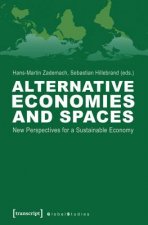
Alternative Economies and Spaces
882 Kč -
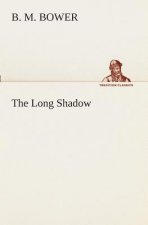
Long Shadow
829 Kč -

Logistics
3313 Kč -

Poetics
428 Kč -

Pfrundner
516 Kč
Dárkový poukaz: Radost zaručena
- Darujte poukaz v libovolné hodnotě a my se postaráme o zbytek.
- Poukaz se vztahuje na celou naši nabídku.
- Elektronický poukaz vytisknete z e-mailu a můžete ihned darovat.
- Platnost poukazu je 12 měsíců od data vystavení.
Více informací o knize Fetishism to Credit Money with an Intrinsic Power to Change ('Invert') Society and Culture
Nákupem získáte 41 bodů
 Anotace knihy
Anotace knihy
Essay from the year 2013 in the subject Pedagogy - Science, Theory, Anthropology, grade: 69, University of Cambridge, language: English, abstract: Modern money is not easily captured. Some accounts even claim that its defining feature is its quality as a universal leveller and yardstick (see Maurer, 2006:16). This quality, however, is exactly what we want to debate. Without being confined to a particular conceptualisation of modern money as a means of payment, a store of value and a unit of account, I want to approach money as such in its various forms in traditional (nonmodern) contexts and our own credit-money -bank form. The question is what effect a money has: does it flatten, commensurate and homogenise? Is it true that when monetary exchange is anonymous and anonymizing, the social identities of transacting parties are irrelevant to the value of the objects mediated by money and so the things take on the powers of the fetish (Maurer, 2006:23)? As the following discussion shows, you can indeed find examples for this flattening function of money. Not only does Marx explicitly focus on this negative, fetishised i.e. concealed quality of money as confuser , but Bohannan (1959) finds this effect of modern money on the Tiv economy in Nigeria. Kwon s (2007) analysis of Vietnamese ghost money generally agrees with Bohannan but introduces a more balanced view on money s cultural meanings and potential problems of human agency and performativity as opposed to seeing it as an inherent quality. Simmel s other side of money s potential effect increased freedom and a new form of relation are brought into the debate with Cole s (2005) account of transactional sex in Madagascar partly building on Hutchinson s (1992) fieldwork among the Nuer. Money should not be seen through the eyes of Western folk tales (Maurer, 2006:19) but in its culturally specific context. Money is not one-sided but its effects depend on where it is used by whom in what kind of practice. Marx account is merely one part of this story the one that now has become exactly that, a Western folk tale.
 Parametry knihy
Parametry knihy
Zařazení knihy Knihy v angličtině Society & social sciences Education
414 Kč
- Plný název: Fetishism to Credit Money with an Intrinsic Power to Change ('Invert') Society and Culture
- Autor: Johannes Lenhard
- Jazyk:
 Angličtina
Angličtina - Vazba: Brožovaná
- Počet stran: 12
- EAN: 9783656466413
- ISBN: 3656466416
- ID: 02134364
- Nakladatelství: Grin Publishing
- Hmotnost: 41 g
- Rozměry: 254 × 178 × 1 mm
- Datum vydání: 27. September 2013
Oblíbené z jiného soudku
-
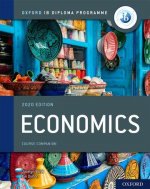
Oxford IB Diploma Programme: IB Economics Course Book
1594 Kč -

OET Preparation
246 Kč -

Cambridge IGCSE (R) & O Level Complete Physics: Student Book Fourth Edition
929 Kč -

Business Partner B2 Workbook
462 Kč -

Business Partner B1 Workbook
434 Kč -

Imagine If...
306 Kč -

OET Reading Subtest Preparation
343 Kč -

Vol 2 Blackletter Lettering Adventures
635 Kč -
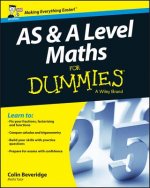
AS & A Level Maths For Dummies
455 Kč -

CompTIA Security+ Review Guide - Exam SY0-601
621 Kč -

Amazing Autistic Brain Cards
1000 Kč -

Hanbo Jutsu: Use of Hanbo, Cane and Walking Stick for Self Defense
284 Kč -

Embodied Teen
545 Kč -

Blue Book of Grammar and Punctuation: An Easy- to-Use Guide with Clear Rules, Real-World Examples , and Reproducible Quizzes, Twelfth Edition
393 Kč -

Positive Discipline Tools for Teachers
433 Kč -
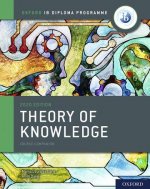
Oxford IB Diploma Programme: IB Theory of Knowledge Course Book
1466 Kč -
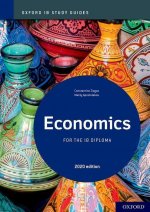
Oxford IB Study Guides: Economics for the IB Diploma
1120 Kč -

Speed and Accuracy: Division
210 Kč -

GCSE Spanish Exam Practice Workbook (includes Answers & Free Online Audio)
220 Kč -

KS3 Maths 10-Minute Weekly Workouts - Year 7
199 Kč -

Vertical Academy
919 Kč -

Grade 9-1 GCSE Maths AQA Revision Question Cards - Higher
241 Kč -

Human Landscapes from My Country
656 Kč -

Cambridge IGCSE (R) & O Level Complete Chemistry: Student Book Fourth Edition
992 Kč -

Oxford IB Diploma Programme: IB Course Preparation Mathematics Student Book
992 Kč -
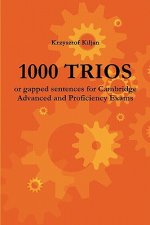
1000 TRIOS or gapped sentences for Cambridge Advanced and Proficiency Exams
608 Kč -

Business Partner B1+ Workbook
462 Kč -

(ISC) SSCP SG & SSCP Practice Test Kit, 3e
1745 Kč -

Einkorn
519 Kč -

Czech Verbs
954 Kč -

Motivation and Reinforcement
1161 Kč -

Pearson Edexcel International GCSE (9-1) English Language B Student Book
1328 Kč -

Read Write Inc. Phonics: Red Ditty Book Bag Books (Mixed Pack of 10)
1586 Kč -

Oxford International Primary Maths Second Edition: Practice Book 1
323 Kč -

Forensic Linguistics Articles
417 Kč -

Corrected Squares of The Book of Abramelin
14513 Kč -

Exam Prep for Microeconomics by Pindyck & Rubinfeld, 6th Ed.
1089 Kč -

KS3 Maths 10-Minute Weekly Workouts - Year 8
199 Kč -
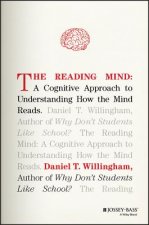
Reading Mind - A Cognitive Approach to Understanding How the Mind Reads
556 Kč -

Ganzheitliche Sprachförderung
807 Kč -

Internet Protocol over Link-16
1646 Kč -

Effect of Registration Errors on Tracking in a Networked Radar System
1646 Kč -

Princeton Review SAT Premium Prep, 2021
1141 Kč -

CEH v11 Certified Ethical Hacker Study Guide + Practice Tests Set
1869 Kč -

10 Practice Tests for the SAT, 2021 Edition
846 Kč -
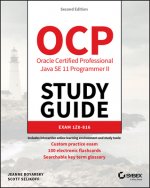
OCP Oracle Certified Professional Java SE 11 Programmer II Study Guide - Exam 1Z0-816 and Exam 1Z0-817
1336 Kč -

Prepared
876 Kč -

Powerful Teaching: Unleash the Science of Learning
665 Kč -

Physics for You
1249 Kč
Osobní odběr Praha, Brno a 12903 dalších
Copyright ©2008-24 nejlevnejsi-knihy.cz Všechna práva vyhrazenaSoukromíCookies



 Vrácení do měsíce
Vrácení do měsíce 571 999 099 (8-15.30h)
571 999 099 (8-15.30h)